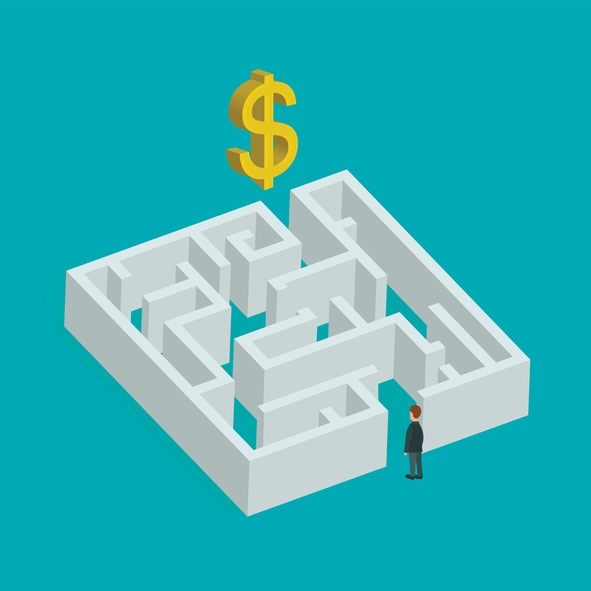You have /5 articles left.
Sign up for a free account or log in.

iStock/svt1992
The need to succeed at getting grants is a continuing part of faculty life at research institutions. Watching the process leaves some graduate students and postdocs convinced that they want no part of it. The stakes seem so high. And it’s true, the stakes are high. But bringing in outside funding is the only way to sustain an independent research-driven career in an academic setting.
If grant writing requires researchers to justify their upkeep and show continuing innovation, then they are hardly alone. It’s not very different outside the ivory tower. Demonstrating one’s creative prowess and professional mastery is a part of careers ranging from architecture to zymurgy. Rock stars sing for their supper, and novelists need more than one story to tell. Whether your destiny is in the professoriate or beyond, if you become comfortable with writing down what you do, how it matters and why others should give you money to do more of it, you will strengthen your capacity to succeed at many potential careers.
Never a Better Time
Very early in your career, you have a better chance of getting funded than researchers at any later stage, yet most grad students and postdocs don’t seek, much less obtain, funding. So while there may be tens of thousands of potentially eligible writers, the competition is sometimes not as stiff as you’d fear. While chances for substantial funding for grad students are far less common than at the postdoc level, many available sources can help a little and make you and your work stand out. Examples beyond full fellowships include awards that pay off in books rather than money, small scholarships and cash research prizes, travel awards for meetings, bursaries for off-site courses, and more.
The perception that everyone must be competing for all available funding opportunities sometimes leads to remarkably small applicant pools and thus correspondingly high success rates for those who actually apply. And these early-career grant applications are not very intimidating to prepare. They’re usually short and straightforward. Preparing such an application for a grant or prize provides a reason to reconsider your work and write down your thoughts. That’s a valuable exercise, whether your proposal is selected for support or not.
It may be hard to convince yourself that success at getting small dollars matters, but it does. When you bring in your own support, your confidence grows and you get closer to independence. When you have your own money, you start to have more mental room to think about new projects to develop outside the work you have developed in conversation with your adviser.
As you move on in your training, opportunities for larger grants increase. I did a quick check while writing this and spotted more than 200 private-sponsor fellowships available for postdocs. Add in state, regional, federal and international funders, and you’ll realize that there are thousands of available grants specifically designed to support academics who are finishing off their training phase and moving toward full independence.
A Context for Reaching Out
Building your network is an idea that stumps people -- and not just in academe. But asking others to help you develop your own funding is a terrific way to grow warm relationships with people who otherwise might remain acquaintances. Still, you have to do your homework first to make sure that you’re using their time well.
The best education in how to get grants is writing a few with some tacit advice from people who do it well. Most people don’t write proposals all alone, especially when they’re starting out. Your adviser should be only one of the people you look to for help with your grants. You can learn from plenty of other people on a university campus, including writing center staff and students and postdocs who have reputations as good writers and editors.
As when you’re trying to learn a new technique, you should seek advice from someone who is repeatedly successful at bringing in grants. Who is good at it may not be obvious: someone with a multimillion-dollar grant to support a center might not be able to tell you as much as someone with a portfolio of smaller grants from diverse sources. Identify and approach a couple of those experts and ask if they might be willing to help as you make your first attempts at getting funded. It’s a simple request and one that many scholars will happily accept.
When you find an announcement for a grant program that seems to fit you, sketch out a list of specific aims, then contact the program officer -- the funding agency person who knows the most about the announcement -- and ask if you can talk about a potential application. Program officers frequently get to know researchers through this kind of contact, and they often work with the same research community over time, so the initial conversation is unlikely to be your last. Be ready to discuss your ideas, but also be prepared to listen, especially if your work isn’t quite right for the program. Otherwise, you may miss helpful insights into other opportunities that will fit you better.
If the grant does fit, feel encouraged and get busy! The hardest part of writing a grant is fine-tuning the specific aims. Send your aims to the excellent grant writer who has agreed to help and set up a time a few days later to talk about it. In that conversation, you’ll probably hear some positive things, but you should also hear suggestions that send you back to the drawing board. Don’t take those too hard -- they are exactly the kind of feedback that you want, and they’ll make your proposal stronger.
The conversations you will have around those suggestions will begin to build connections between you and your helper, both at the level of your work and personally. Follow up with the good (or frustrating) news when your proposal’s reviews come back. If it isn’t supported, ask for advice on revising and resubmitting. Eventually your work will be funded: proposals revised and resubmitted after peer review generally have higher funding rates than on the first try.
Be grateful to your friend when you get your grant. Stay in touch. That natural human connection will continue to grow and get stronger. Networking is as simple as that.








